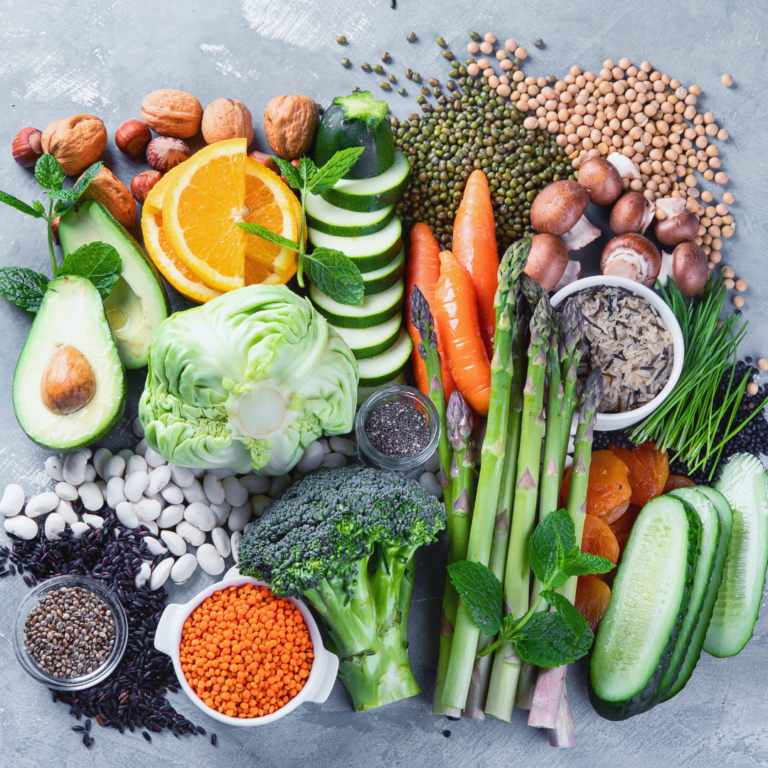
Plant-based eating has garnered significant attention as more people explore its potential benefits and drawbacks. Many choose this dietary approach for its health advantages, such as improved heart health and weight management. The diet often emphasizes high nutrient intake through fruits, vegetables, legumes, and whole grains, which can lead to a healthier lifestyle.
While a plant-based diet can be rich in essential nutrients, it may also present challenges, especially for those transitioning from a traditional diet. Those following a vegan or vegetarian diet need to be mindful of obtaining sufficient protein, vitamins, and minerals that are typically found in animal products. Balancing these nutrients is vital to avoid deficiencies while enjoying the benefits of plant-based eating.
Understanding the pros and cons of this lifestyle helps individuals make informed dietary choices. The rising popularity of plant-based diets suggests a shift toward health-conscious eating, but it also raises questions about sustainability and accessibility. Readers will gain a clearer perspective on whether this diet aligns with their health goals and lifestyle choices.
Nutritional Profile of Plant-Based Diets
Plant-based diets are rich in various nutrients. This section explores the macronutrient composition, essential vitamins and minerals, and the role of fiber and antioxidants in plant-based eating.
Macronutrient Composition
Plant-based diets generally provide a balanced macronutrient profile. Carbohydrates are dominant, mainly from whole grains, fruits, and vegetables, contributing to energy levels. These carbohydrates often come with fiber, supporting digestive health.
Proteins in these diets are sourced from beans, legumes, nuts, and seeds. While plant proteins can provide adequate building blocks, they may lack certain essential amino acids. Combining different plant sources can help achieve a complete protein intake.
Fats are usually unsaturated, found in avocados, nuts, and seeds, promoting heart health. A focus on healthy fats is essential for nutrient absorption.
Vitamins and Minerals
Vitamins and minerals play crucial roles in maintaining health on a plant-based diet. These diets provide ample vitamins A, C, and E through various fruits and vegetables, promoting immune function and skin health.
Minerals like iron, calcium, and magnesium can also be obtained from plant sources. However, vitamin B12 is a critical nutrient typically found in animal products, necessitating supplementation or fortified foods for those on strict plant-based diets.
Ensuring a diverse range of foods helps meet mineral needs, as leafy greens, nuts, and legumes contribute considerably.
Fiber and Antioxidants
Fiber is abundant in plant-based diets, supporting digestive health and stabilizing blood sugar levels. High-fiber foods include whole grains, beans, and fruits, which enhance feelings of fullness and prevent overeating.
Antioxidants found in fruits, vegetables, nuts, and seeds combat oxidative stress in the body. Common antioxidants include flavonoids and carotenoids, linked to reduced inflammation and chronic disease risk.
The combination of high fiber content with antioxidants makes plant-based diets beneficial for overall health and wellness.
Health Benefits and Concerns
Plant-based eating offers significant health benefits while also presenting some concerns. This section explores the impacts on disease prevention, weight management, gut health, and potential nutritional deficiencies.
Disease Prevention
A plant-based diet is associated with a reduced risk of chronic diseases. Studies indicate that those consuming plant foods have lower rates of heart disease, diabetes, and certain cancers.
Phytochemicals found in fruits and vegetables, such as flavonoids and carotenoids, contribute to this protective effect. They possess antioxidant properties that combat oxidative stress and inflammation, which are key factors in disease development.
Regular intake of plant foods can also help manage blood pressure and cholesterol levels, further reducing the risk of heart disease and stroke.
Weight Management and Healthy Weight
Individuals on a plant-based diet often experience healthier weight management. Plant foods tend to be lower in calories and higher in fiber, promoting satiety and reducing overall calorie intake.
Research shows that vegans typically have a lower body mass index (BMI) compared to meat-eaters. This is attributable to their consumption of whole grains, legumes, fruits, and vegetables.
Maintaining a healthy weight lowers the risk of conditions such as obesity, heart disease, and diabetes, making plant-based eating a beneficial choice for weight control.
Gut Health and Immune System
A diet rich in plant-based foods enhances gut health and boosts the immune system. Fiber from these foods acts as prebiotics, nourishing beneficial gut bacteria.
This microbiome diversity plays a crucial role in digestion and immunity. A healthy gut can lead to better nutrient absorption and reduced inflammation.
Moreover, specific plant foods are known to strengthen the immune response. For instance, fruits high in vitamin C can help the body fend off infections and support overall health.
Potential Nutritional Deficiencies
While plant-based diets offer numerous benefits, they can also lead to nutritional deficiencies if not properly planned. Key nutrients such as vitamin B12, iron, and omega-3 fatty acids are more abundant in animal products.
Vitamin B12 deficiency is a significant concern for vegans, as it is primarily found in animal sources. Without adequate B12, individuals risk neurological issues and anemia.
Iron is another nutrient of concern. While plant sources provide non-heme iron, it is less bioavailable than heme iron found in animal products. Consuming vitamin C-rich foods alongside iron sources can enhance absorption.
Being mindful of these nutrients ensures a balanced and health-promoting plant-based diet.
Environmental and Ethical Considerations
Plant-based eating presents significant environmental and ethical implications. Understanding these facets provides insight into its broader impact beyond personal health.
Impact on Climate Change
A shift to a plant-based diet can play a crucial role in mitigating climate change. Animal agriculture is responsible for approximately 14.5% of global greenhouse gas emissions. This sector releases methane, nitrous oxide, and carbon dioxide at alarming rates.
Reducing meat and dairy consumption can lead to lower emissions. For example, a 2017 study indicated that if the global population adopted a vegan diet, food-related emissions could drop by 70% by 2050. Additionally, plant-based farming typically requires less land and water, further decreasing environmental strain.
Animal Welfare
Concerns regarding animal welfare are central to the discussion of plant-based eating. Many advocate for plant-based diets as a means to reduce the suffering of farm animals. Factory farming practices often involve crowded, inhumane living conditions.
By choosing plant-based options, individuals contribute to a decreased demand for such methods. Ethical considerations also highlight the benefits of promoting humane farming practices that respect animal rights. As awareness of these issues grows, the shift towards plant-based diets aligns with an increasing desire for ethical consumption.
Comparing Plant-Based Proteins with Animal-Based Sources
The nutritional profiles of plant-based and animal-based proteins differ significantly. Understanding these differences helps in making informed dietary choices.
Plant Protein Versus Animal Protein
Plant proteins come from sources such as legumes, nuts, seeds, and grains. Key examples include tofu, lentils, and quinoa. While plant proteins can be lower in certain essential amino acids, they often provide valuable nutrients like fiber and antioxidants.
Animal proteins, found in meat (including fish, chicken, and red meat), eggs, and dairy products, typically offer a complete amino acid profile. This means they provide all nine essential amino acids required by the body. However, these sources may also carry higher levels of saturated fat and cholesterol.
|
Protein Source |
Protein per 100g | Essential Amino Acids | Other Nutrients |
|
Tofu |
8g | Incomplete | Calcium, Iron |
|
Lentils |
9g | Incomplete |
Fiber, Folate |
| Chicken | 31g | Complete |
Niacin, Selenium |
| Fish | 25g | Complete |
Omega-3 Fatty Acids |
Incorporating Plant Protein into the Diet
To effectively add plant protein to meals, individuals can employ various methods. Foods like lentils, chickpeas, and quinoa can easily join salads, soups, and grain dishes.
In using plant-based proteins, it’s essential to combine different sources to achieve a complete amino acid profile. For example, pairing rice with beans or tofu with whole grains can enhance protein quality.
Cooking techniques such as steaming, stir-frying, or baking can preserve the nutritional value of these foods, making them more enjoyable and easier to incorporate into daily diets.
Meat Substitutes and Their Health Implications
Meat substitutes like vegan sausages and hamburgers have gained popularity, providing alternatives that mimic the taste and texture of animal products. Many of these substitutes are made from soy, peas, or other plant proteins.
While these products offer convenience, they may also contain high levels of sodium and preservatives. Reading labels for nutritional information is important.
Using meat substitutes can help individuals reduce meat consumption while still addressing protein needs. Balancing these with whole food sources is advisable to ensure optimal nutrient intake.
